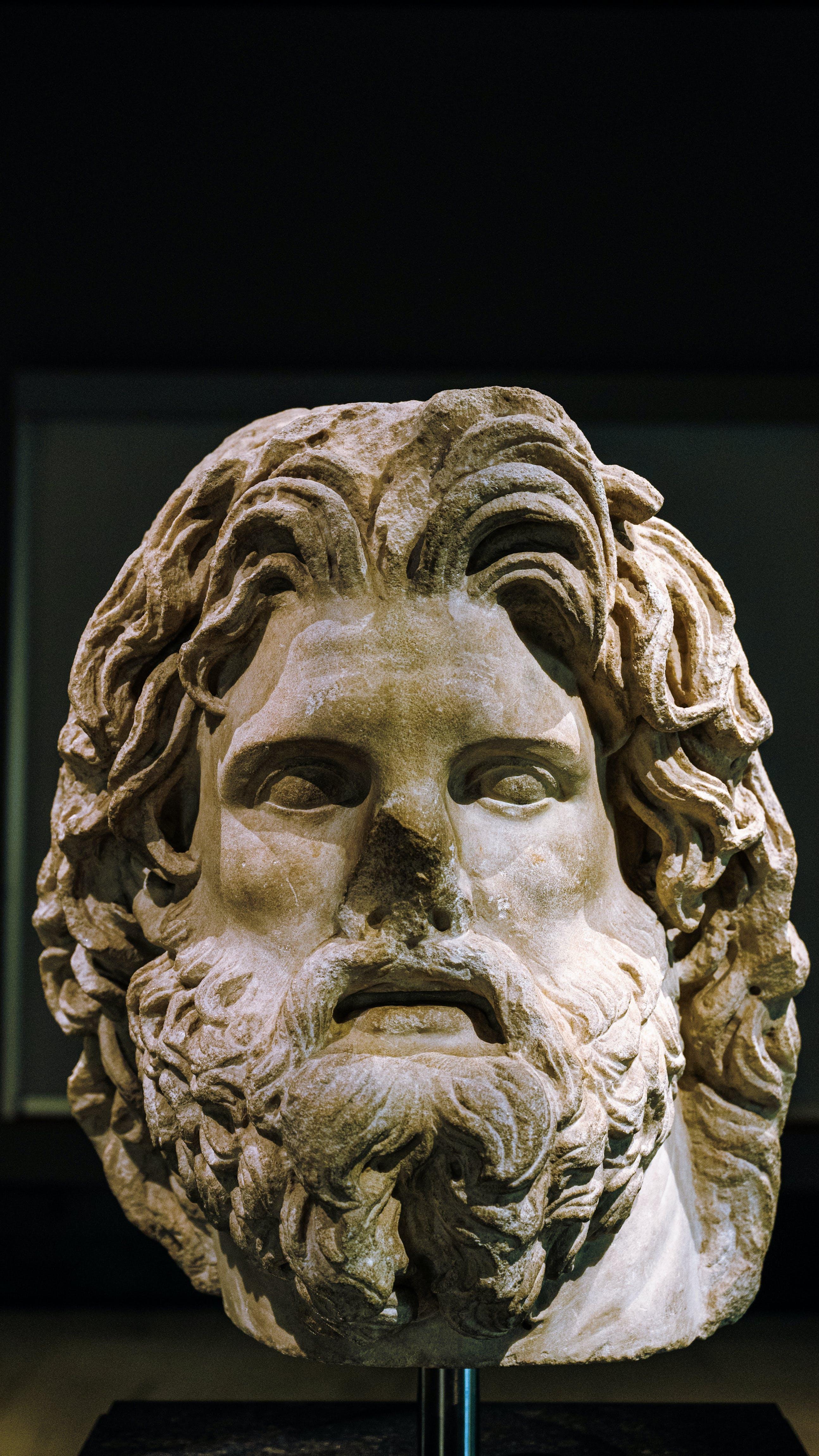The Hellenistic era, which spanned from the death of Alexander the Great in 323 BCE to the Roman conquest of Egypt in 30 BCE, was a time of remarkable intellectual and scientific advancements. This period saw the convergence of ideas from various cultures, blending Greek, Egyptian, Persian, and Indian influences. The exchange of knowledge and ideas during this time sparked a wave of discoveries and innovations that continue to shape our world today.
In this blog post, we will delve into the fascinating discoveries made during the Hellenistic era. From the groundbreaking work of renowned scientists to the development of Hellenistic culture and its spread across vast territories, join us as we explore the achievements that defined this remarkable period in history. So, let’s embark on a journey through time and uncover the remarkable discoveries made during the Hellenistic era!

The Three Most Famous Scientists of the Hellenistic Age
In order to fully grasp the magnitude of the discoveries made during the Hellenistic era, it is important to understand the contributions of the brilliant minds that emerged during this time. So, who were the three most famous scientists of the Hellenistic age? We will unveil their names and delve into their groundbreaking work. But before we do that, let’s explore why the Hellenistic culture developed and how it originated.
(Next, we will cover the questions regarding the development and origin of Hellenistic culture, the main elements of Hellenistic religion, the spread of Hellenistic culture, the greatest accomplishment and achievements of the Hellenistic world, and the possibility of converting to Hellenism.)

What discoveries were made during the Hellenistic era
The Hellenistic era, which spanned from the death of Alexander the Great in 323 BCE to the Roman conquest of Egypt in 30 BCE, was a time of incredible intellectual and scientific progress. During this period, many groundbreaking discoveries were made, shaping the world as we know it today.
Mathematics and Physics: Unraveling the Mysteries of the Universe
In the realm of mathematics, Hellenistic scholars delved into new areas of study, pushing the boundaries of human understanding. Mathematicians like Euclid developed the foundation of geometry in his renowned work “Elements”. Meanwhile, Archimedes made significant contributions to understanding the principles of buoyancy and conducted groundbreaking research in the field of mechanics.
Medicine and Anatomy: Advancements in Healthcare
The Hellenistic era was marked by remarkable progress in the field of medicine. The renowned physician Hippocrates developed the ethical code that forms the basis of modern medicine, known as the Hippocratic Oath. He also made important strides in categorizing diseases and their symptoms. Additionally, the anatomist Herophilus performed detailed dissections, making significant contributions to our understanding of human anatomy.
Astronomy: Exploring the Cosmos
During the Hellenistic era, astronomers made profound discoveries that revolutionized our understanding of the universe. The likes of Aristarchus and Eratosthenes made remarkable strides in measuring the size and shape of the Earth, and proposed the heliocentric theory long before Copernicus. Furthermore, Hipparchus developed the first comprehensive catalog of stars, laying the foundation for modern astronomy.
Literature and Philosophy: Exploring the Depths of human Mind
The Hellenistic era gave rise to a flowering of literature and philosophical thought. Prominent figures such as Epicurus and Zeno of Citium developed their own philosophical schools, seeking to understand the nature of existence and the pursuit of happiness. Meanwhile, poets like Callimachus and Theocritus explored new forms of poetic expression, adding depth and complexity to the literary world.
Engineering and Architecture: Mastering the Art of Construction
The Hellenistic period witnessed immense advancements in engineering and architecture. Brilliant minds like Apollonius of Perga designed groundbreaking machines, such as the astrolabe, that facilitated astronomical calculations. Moreover, the iconic lighthouse of Alexandria, one of the Seven Wonders of the Ancient World, was constructed during this time, showcasing the architectural prowess of the Hellenistic era.
In conclusion, the Hellenistic era was a time of tremendous intellectual and scientific discovery. From advancements in mathematics and physics to breakthroughs in medicine, astronomy, literature, philosophy, engineering, and architecture, the achievements of this period continue to shape our world today. The accomplishments of Hellenistic scholars have laid the foundation for countless future innovations, making their mark in the annals of history.
FAQ: What discoveries were made during the Hellenistic Era
Who were the three most famous scientists of the Hellenistic Age
Archimedes: The Genius of Mathematics
Hailing from Syracuse, Archimedes was one of the brightest minds of the Hellenistic Era. Renowned for his groundbreaking contributions to mathematics, physics, and engineering, Archimedes left an indelible mark on history. From his famous principle of buoyancy to his revolutionary approximation of pi, this scientific superstar continues to awe us with his intellect.
Hipparchus: The Stargazing Visionary
Have you ever marveled at the night sky and wondered why the stars seem to move? If so, you have Hipparchus to thank for his pioneering work in the field of astronomy. This Greek astronomer, born in Nicaea, developed the first comprehensive star catalog, introducing the concept of celestial coordinates. His meticulous observations and mathematical calculations set the stage for future astronomical advancements.
Eratosthenes: The Geographical Trailblazer
Imagine not knowing the circumference of the Earth or the true size of our planet. Thanks to Eratosthenes, we no longer have to wonder. This Greek polymath, hailing from Cyrene, successfully estimated the Earth’s circumference using simple geometry and his keen intellect. By comparing the angles of sunlight in different locations, Eratosthenes calculated the Earth’s size and paved the way for modern geography.
Why did the Hellenistic culture develop
The Hellenistic culture emerged as a direct consequence of Alexander the Great’s conquests. When Alexander expanded his empire, he facilitated the blending of Greek traditions with those of the conquered territories. This cultural fusion gave rise to the Hellenistic period, showcasing a rich tapestry of ideas, customs, and artistic expression.
What was Hellenistic culture, where did it originate, and how did it spread
A Blend of East and West: Hellenistic Culture Defined
Hellenistic culture refers to the dynamic fusion of Greek, Persian, Egyptian, and Eastern traditions that flourished during the Hellenistic period. It originated in the aftermath of Alexander the Great’s conquests and spread across his vast empire, spanning from Europe to Asia and Africa.
The Ripple Effect: How Hellenistic Culture Spread
Alexander’s empire acted as a catalyst for the spread of Hellenistic culture. As Greek officials, soldiers, and merchants settled in conquered lands, they introduced Greek language, customs, and ideas. The renowned Library of Alexandria became a melting pot of knowledge, attracting scholars from all corners of the empire. The influence of Hellenistic culture reached its zenith under the Ptolemaic dynasty in Egypt.
What were the main elements of Hellenistic religion
In Hellenistic times, religion played a crucial role in people’s lives, imbuing their existence with meaning, rituals, and beliefs. Here are some of the main elements that defined Hellenistic religion:
The Olympian Pantheon: Gods and Goddesses Galore
Hellenistic religion revolved around a pantheon of gods and goddesses, including Zeus, Poseidon, Aphrodite, and Athena. These deities represented various aspects of life, and people sought their favor through offerings and prayers.
Mystery Cults: Beyond the Olympians
Alongside traditional worship, Hellenistic society witnessed the rise of mystery cults. These secretive and exclusive groups promised initiates an intimate connection with a particular deity, offering the hope of salvation or personal transformation.
What was the greatest accomplishment of the Hellenistic world
Amidst the numerous remarkable achievements of the Hellenistic world, one stands above the rest: the unrivaled perfection of Hellenistic art and sculpture. This artistic period brought forth breathtaking masterpieces, characterized by meticulous attention to detail, emotional expression, and an exploration of human form. From the stunning Venus de Milo to the captivating Winged Victory of Samothrace, these sculptures continue to captivate and inspire art enthusiasts worldwide.
What was the greatest achievement of the Hellenistic period
While the Hellenistic period saw a multitude of extraordinary developments, the most remarkable achievement was the advancement of knowledge and scholarship. This era witnessed remarkable strides in various fields, including mathematics, natural sciences, astronomy, and philosophy. Scholars such as Archimedes, Hipparchus, and Euclid laid the foundations for scientific inquiry and formed the basis for future breakthroughs that continue to shape our understanding of the world.
Can you convert to Hellenism
While Hellenic religion has experienced a resurgence of interest, it is not a mainstream religion practiced today in its ancient form. However, if you are intrigued by the spiritual concepts and ancient traditions of Hellenism, you can explore modern incarnations such as Hellenic Reconstructionism. Dedicated practitioners seek to reconstruct the beliefs and practices of ancient Hellenic religion, adapting them to contemporary times.
What discoveries were made during the Hellenistic era
The Hellenistic era was a fertile ground for groundbreaking discoveries across various disciplines. During this transformative period, scholars made remarkable advancements, including:
Mathematics and Physics
Archimedes’ groundbreaking work in mathematics and physics brought forth revolutionary concepts such as the principle of buoyancy, the approximation of pi, and innovative mechanical inventions.
Astronomy and Geography
Hipparchus’s meticulous star cataloging and Eratosthenes’ calculation of the Earth’s circumference were significant achievements that shed light on the mysteries of the sky and our planet’s size.
Medicine and Anatomy
Hellenistic scholars like Herophilus and Erasistratus significantly advanced the field of medicine, gaining unprecedented understanding of the human body through dissections and anatomical research.
Philosophy
Philosophers like Epicurus and Zeno of Citium founded schools of thought that explored the nature of happiness, ethics, and the human experience, shaping philosophical discourse for centuries to come.
The Hellenistic era was an era of relentless intellectual curiosity and a spirit of inquiry that continue to inspire and influence our world today.
